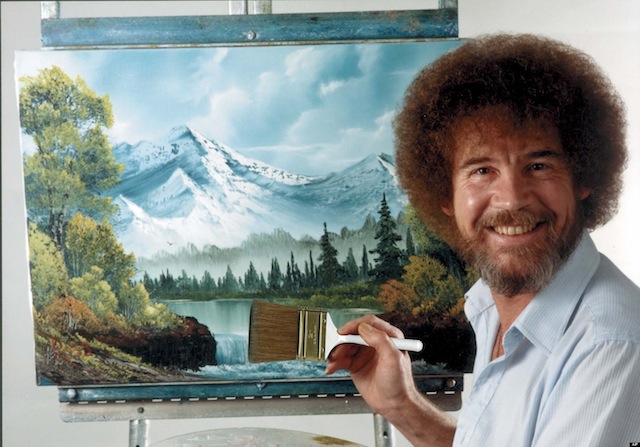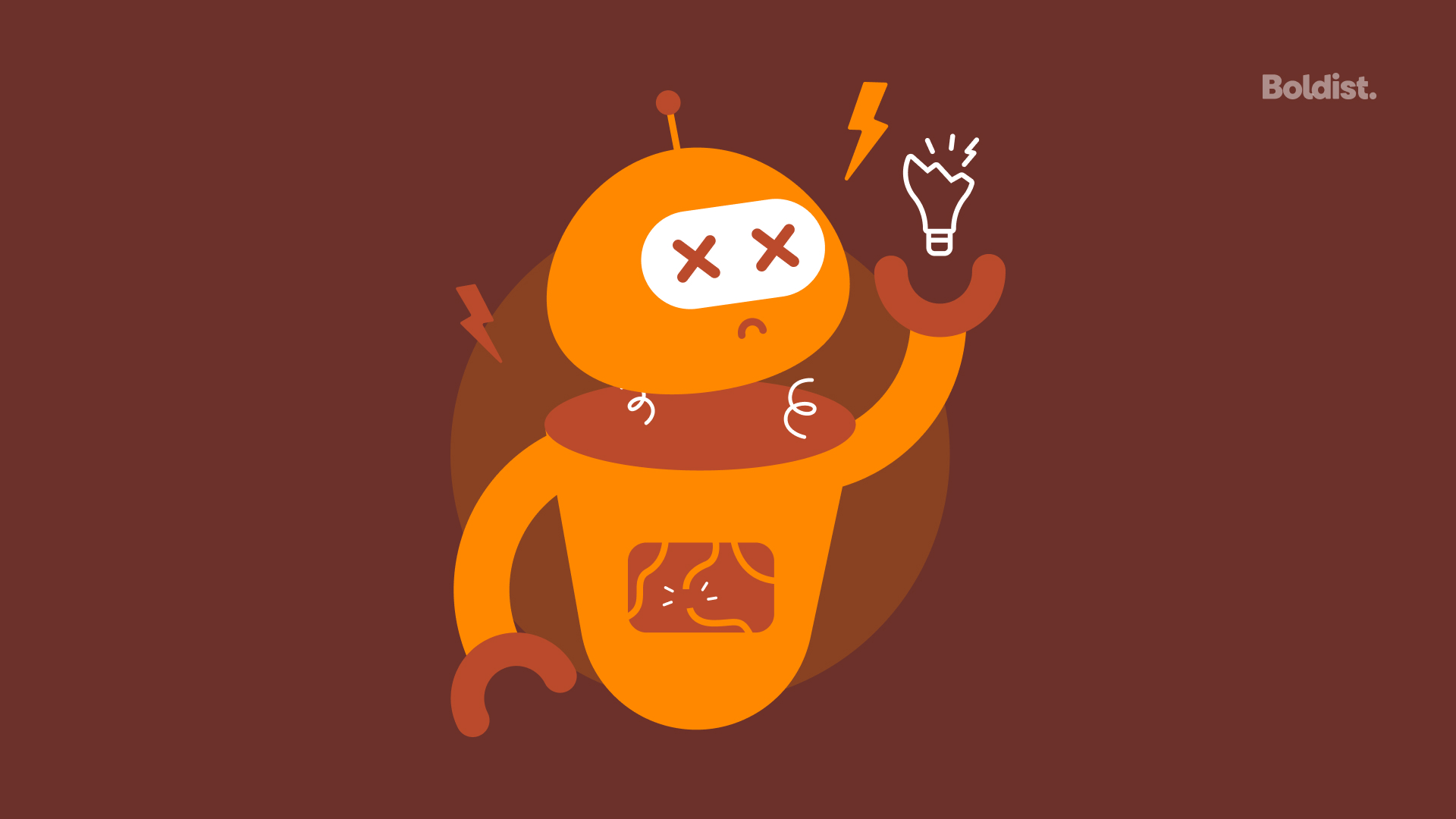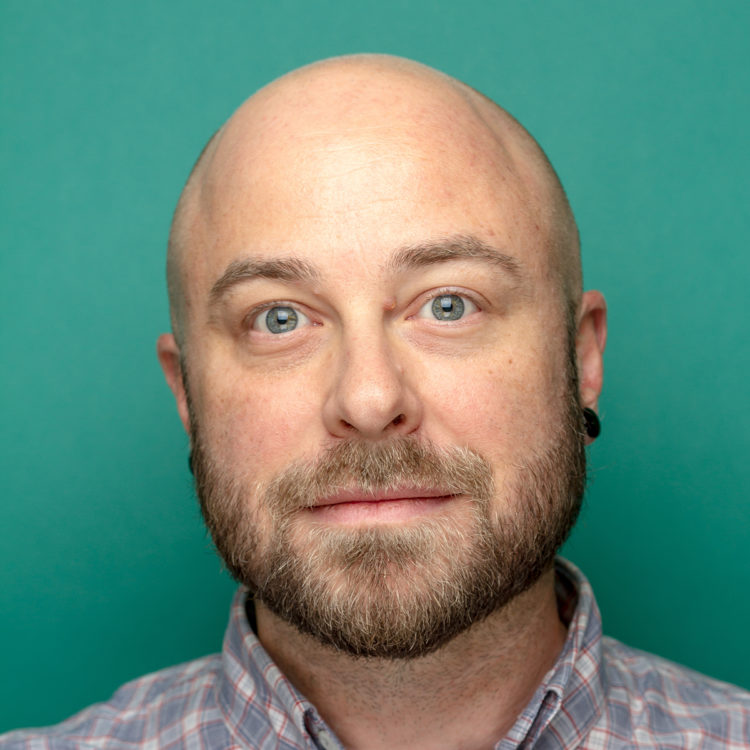The best part about creative blocks is that, eventually, they give way to epiphany. And epiphanies are awesome. They sing. They glow. They make you feel like you’re Einstein, except alive.

Creativity is all about solutions. You can’t have a solution without a problem, just as you can’t have day without night. So don’t curse yourself if you’re having trouble with your next great idea. Be thankful you have a problem. You’re on the brink of discovery.
Here are some ways we Samurai slay our creative dry spells and enter the realm of brilliance.
Create Distance.
No matter how much you try, you’ll never fit the corner piece into the center of the puzzle. So stop trying to force the piece where it doesn’t belong. Put it aside. Look at some other pieces. Walk away from the puzzle. Do not, I said DO NOT, get angry and break the whole thing apart. There’s no need to pick up all the pieces just because you can’t make one of them fit.
Frustration is the enemy. Breathe. React positively. If someone is flicking your ear repeatedly, we can think of a few simple reactions. One, start flicking that person’s ear. Two, punch that person in the face. Three, cut off your ear so that person can’t flick it anymore. We would call these “negative” ways to handle the situation. We prefer option number four: flee to a spot where it isn’t so easy for the person to flick your ear.
Sometimes we lock up creatively because we need distance. If absence makes the heart grow fonder, distance makes the brain grow wiser. Distance creates a new perspective. If we were characters in a horror movie and our friend tripped and fell while running away from a psychopath, our instincts might tell us to go and help our friend. But when we’re watching the movie in the theater and the character stops to help a fallen friend, we might shout, “No, you idiot, you’re about to get slashed up too.” Distance unburdens us from our instincts.
When you’ve had enough distance, move a little closer, and look again with fresh eyes. You’ll be surprised by what you find. And it was probably there the whole time.
Allow Yourself to Be Inspired.
Maybe you’re creatively dry because your mind is closed. You’re putting all the pressure on yourself to come up with a new, earth shattering idea. But as ‘They’ say, “nothing exists in a vacuum.” Literally, this is not true (there’s often a lot of dirt and lint in there), but figuratively, it’s right on the money: everything operates in context. New ideas are influenced by a whole milieu of factors, especially past ideas. There’s nothing wrong with being conscious of these ideas. No one would have carved a chair from wood if they didn’t already sit on a rock and think, “Hey, I bet I could make something like this more comfortable.”
Inspiration is everywhere, especially in the internet age. We guarantee there’s something on the net that has direct relation to your problem and pending solution. There’s stuff on the net you’ve never thought about. There’s stuff you’ve thought about but haven’t put into words, images, or videos. There’s probably some story out there that can cut right through your mood and make you feel something else. Look for it. Find it. Experience it.
If it’s less information you need, great. Less work. GO OUTSIDE. There’s a whole world out there, equipped with fresh air. Step into the sunlight. Step into the rain. Whatever. Just change your environment. You’re a human being. You’re not meant to hide out in shelter all the time, no matter the safety benefits. You are part of nature. Reconnect. Hey, it worked for Wordsworth. It worked for Whitman. It worked for Monet. It worked for Bob Ross.
And if it’s good enough for Bob Ross, by gum, it’s good enough for you.

Set Some Limitations.
Sometimes we lock up creatively because there are too many possible directions to take. Mostly, people say possibility is a good thing. It’s how we grow, build, evolve, etc. And we don’t disagree. But excessive possibility can be terrifying. If there’s an unlimited amount of ways to do something, and even if they’re all pretty good, you might just sit there forever, contemplating them.
Imagine you’re driving a car and you come to an intersection. Then all of a sudden, your car shrinks and 101 tiny roads open up to your left, your right, and ahead of you. Aside from wondering which science fiction novel you just entered, you’ll take a long time considering each possible road you could take.
It doesn’t have to be this way. Start limiting the types of choices you can make. Maybe you’ll decide to choose from roads that require a right turn. Now you only have 33 roads to choose from. Of these roads, maybe you’ll limit yourself to the freshly paved ones. Ok, now you have 10 roads to choose from. How about only taking roads that don’t have roadkill in sight? Down to 3. Do you get the idea? We often make our decisions based more on what we don’t want rather than what we do.
Limitations can be good. They spark creative solutions. Think MacGyver.

Have No Fear.
Fear can be the biggest creative block. Is this the right idea? Will anyone like it? Maybe someone else could do a better job, blah blah blah. Stop. Get over it. You’ve got a job to do. Do it. So what if all your worst fears are true? It doesn’t get you out of trying. You’ll never really know if you’ve failed until you’ve failed. Even then, you’ll have a better idea how to do it right.
Worrying about failing is the easiest way to start failing. No one craps gold. They crap first drafts. You have to sift through the junk to see if there’s any treasure. Don’t think for a second that Melville sat at a desk, jotted down Moby Dick, skimmed it over once, and went, “Yep. This is flippin’ masterpiece!”
Even if your first attempt at a creative endeavor makes you rethink your definition of “awful,” there will almost always be some spark in there to help you make the proper adjustments or start over again. Nearly all successful authors say, “Writing is rewriting.” Same goes for many creative endeavors.
First, you need raw material. Don’t expect perfection the first time around. But always strive for it when editing.
People often say, you don’t know what you got until it’s gone. We say, you don’t know what you got until you got it.
Collaborate
Ideas have a way of coming to realization through discussion and exploration. It’s incredibly difficult to discuss an idea with yourself. Chances are you’ll just affirm your thoughts and ideas. Your desire for the idea to work will fill any holes in the idea itself or in your plan of action.
If you want the benefits of distance but don’t feel like moving, talk to someone else about it. Let that person analyze it from outside of your brain. Let them ask questions. Let them challenge you. Let them build off it. Let the idea turn into something else.
This is called a dialectic. The ancient Greeks (Socrates, Plato, all those cats) used dialectic to find truth. It wasn’t about who was right and who was wrong. It was about working together to reach an idea that was bigger than each person’s limited worldview.
Novelists have editors. Musicians have producers. Creative thinkers have each other.
Be Ready.
Keep a pen and notepad on you. Or, these days, keep your smartphone handy. Inspiration attacks in the most unlikely places. Don’t lose the spark because you’re unprepared. You don’t want to spend a day trying to remember the stroke of brilliance that flashed through your head while you were taking out the garbage and forgot sometime after the neighbor said “hello.”


